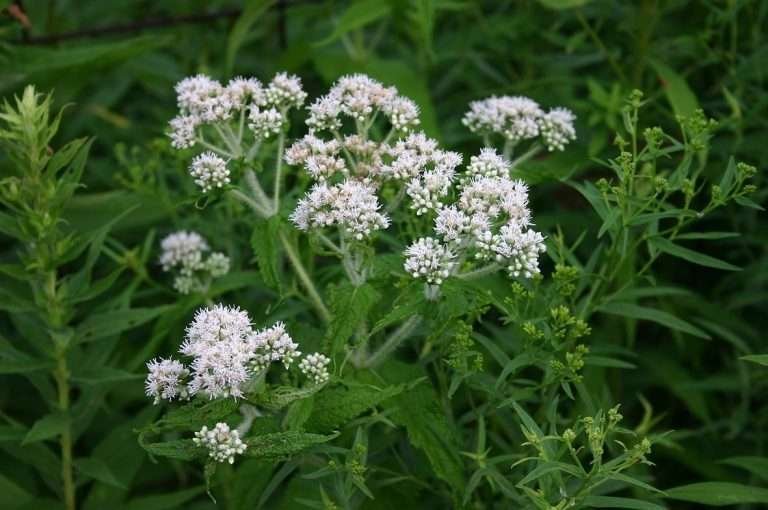Eupatorium perfoliatum
(Common Boneset)

Common Name: Common Boneset
Latin Name: Eupatorium perfoliatum
Family: Asteraceae, or aster, family.
Form: Common boneset is a perennial wildflower that grows to about 4 – 6 feet in height.
Leaves: Opposite, occasionally alternate.
The leaves are connate-perfoliate, which means the bases of the leaves are fused together and surround the stem, making it appear as if the stem is growing directly through the leaf.
Flowers: The clusters of white flowers appear in the spring and summer.
Habitat: It is found growing in marshes, ditches, and wet hammocks.
Native Range: It is found in Florida from the panhandle south to Hernando County.
It is native to the following states: AL, AR, CT, DC, DE, FL, GA, IA, IL, IN, KS, KY, LA, MA, MD, ME, MI, MN, MO, MS, NC, ND, NE, NH, NJ, NY, OH, OK, PA, RI, SC, SD, TN, TX, VA, VT, WI, and WV.
It grows in zones 3a to 9a.
Landscape Use: In the home landscape it is grown in full sun to part shade with moist to wet soils.
Wildlife Use: Butterflies and bees use the flower clusters as a source of nectar.
Boneset is a host plant for the clymene moth (Haploa clymene).
Propagation: It can be grown from seed and transplanting. It generally transplants well since it grows in moist soil. Be sure to keep it moist or plant it in a moist area when transplanting, and remember to remove any flowers or seeds to give the plant the ability to focus on recovering from the shock of being transplanted.
